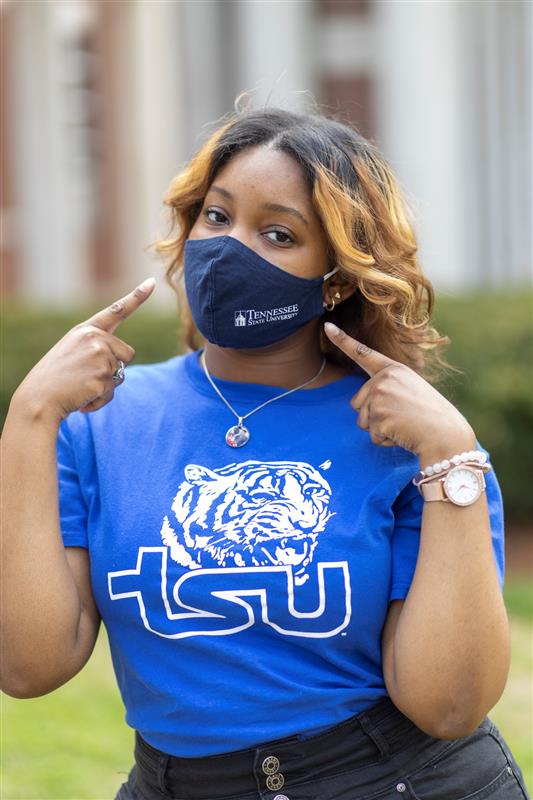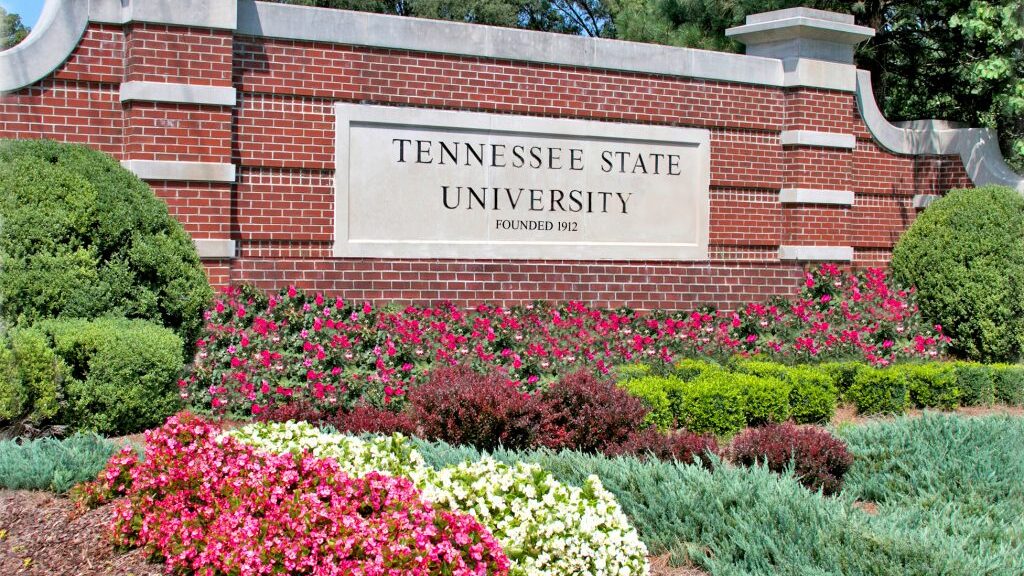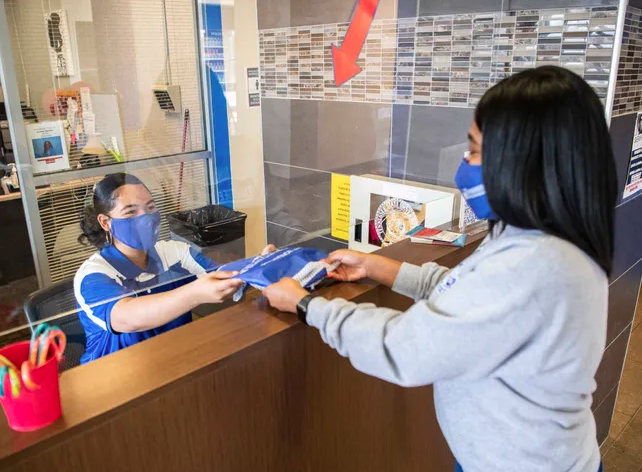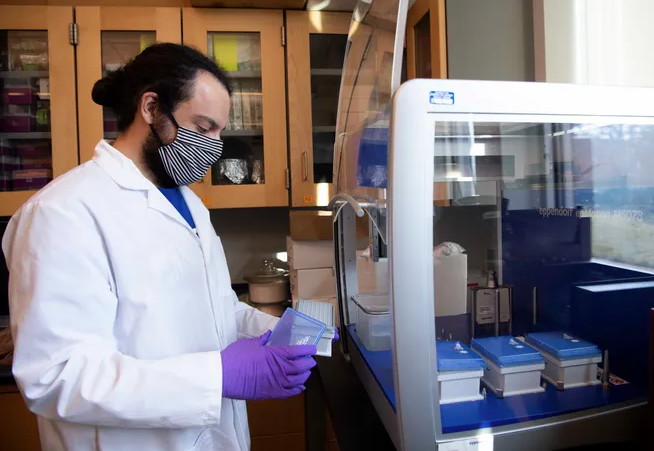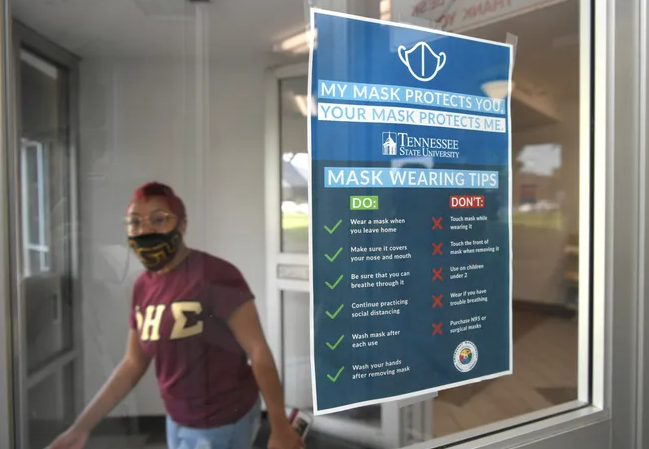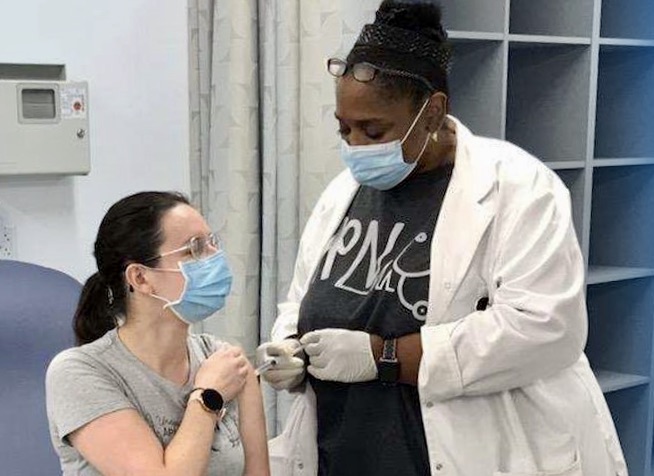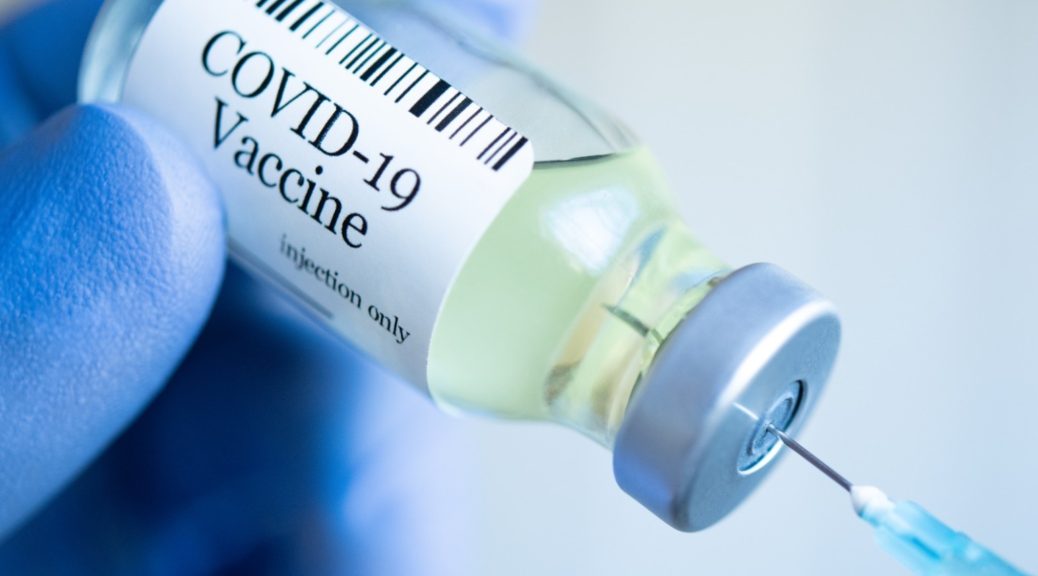NASHVILLE, Tenn. (TSU News Service) – COVID-19 cases are spiking in several states across the country, including Tennessee, as projections from the Centers for Disease Control and Prevention (CDC) indicate the spread of new COVID-19 variants. Recent data shows over 255,000 new cases reported in Davidson County alone within the last 180 days. According to the Tennessee Department of Health, there were nearly 370 new COVID-19 cases in the county for the week ending July 14.
Tennessee State University’s Interim Public Health Program Director, Dr. Wendelyn Iman, emphasizes the importance of immunization as a preventative measure.
“Whatever strain is out there, whatever our physicians are recommending, I would advise my friends and relatives to ensure their immunizations are up to date,” Dr. Iman said.
“The most important thing for us, as an institution, is to be proactive in prevention and for individuals to be immunized against COVID-19. Prevention is so much less expensive.”
Dr. Iman, who is also a subject matter expert on infectious diseases, highlights the necessity for TSU, and all institutions, to take additional preventative measures as students return for the fall semester. TSU officials remain optimistic based on past success navigating the pandemic and will encourage the campus community to take precautions if there is an increase in cases. Along with prevention, the University also stresses the importance of protection and awareness for the academic year and beyond.
“The University wants to ensure that individuals who may be exposed or have the potential to be exposed protect themselves and others by continuing to follow our campus COVID protocols,” said Dr. Curtis Johnson, vice president for Administration and Chief of Staff.
“The University will continue to provide masks, sanitizer, and other protective supplies,” Dr. Johnson added. “We are working with our campus health services to encourage frequent hand washing and meeting in well-ventilated areas when gathering in groups.”
Johnson noted that there are COVID-19 protocols in place for students living on campus, as well as those who commute each day. All students should also alert HR, Emergency Management, or Student Affairs if infected.
“Residential students should report to their residence hall director, who will coordinate with health services for isolation, if necessary. Commuting students are asked to stay off campus for 24 hours and follow COVID protocols for the next five days when in public.”
Nationwide, there was a 23.5% increase in emergency room visits for COVID-19, during the week ending July 6, according to CNN. The media outlet also reported that there has been increased viral activity levels for COVID-19 in wastewater.
During the height of the COVID-19 pandemic, TSU implemented comprehensive safety protocols and offered students a variety of resources and support options. In 2021, students who tested positive for COVID-19 were placed in an area known as the IQ (Isolation and Quarantine) zone, where they received 24-hour service, including access to health professionals, meal delivery three times a day, laundry service, and medication if needed. The university even offered incentives, such as gift cards, to encourage students, faculty, and staff to get vaccinated. Online class discounts were also available for students.
As of July 15, 2024, the SARS-CoV-2 Omicron variants KP.2, KP.3, and LB.1 have high prevalence in the United States. According to USA TODAY, the symptoms associated with the KP.3 variant are similar to those from the JN.1 variant. The CDC outlines some basic symptoms of COVID-19, which can appear between two to 14 days after exposure and range from mild to severe:
- Fever or chills
- Cough
- Shortness of breath or difficulty breathing
- Fatigue
- Muscle or body aches
- Headache
- Loss of taste or smell
- Sore throat
The CDC advises seeking medical attention if experiencing severe symptoms such as trouble breathing, persistent chest pain or pressure, new confusion, inability to wake or stay awake, or pale, gray, or blue-colored skin, lips, or nail beds.
TSU does not have a mask or vaccination mandate in place as outlined by state law, and does not provide COVID-19 testing at this time. However, students, faculty, or staff experiencing symptoms or who have tested positive should contact the Campus Health Center at (615) 963-5291 or [email protected], along with the other appropriate departments as outlined by University protocol.






